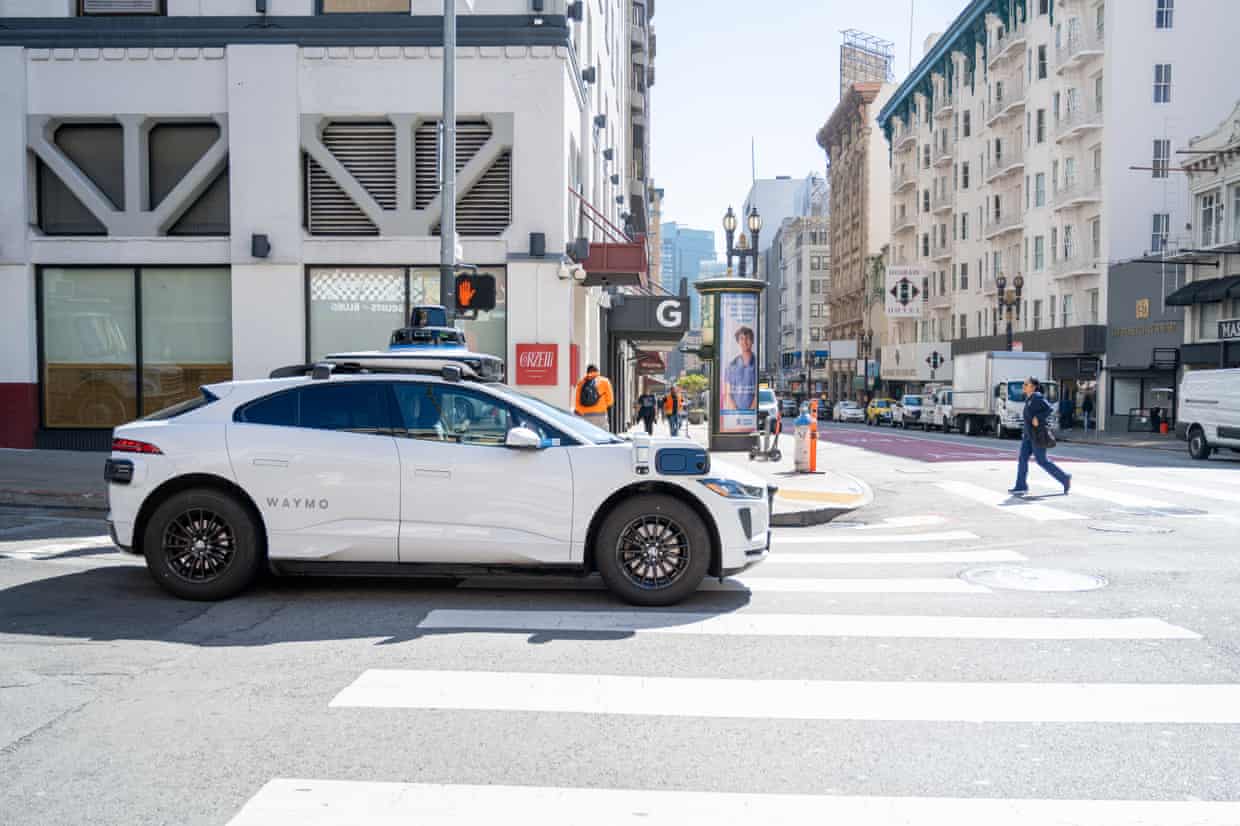‘I really enjoyed it’: new RSC curriculum brings Shakespeare’s works to life in UK classrooms

Act 1.Scene 1.A classroom in a secondary school in Peterborough.It is a dreary, wet afternoon.Pupils file into the room, take their seats and face the front.
These year 10 English students at Ormiston Bushfield academy are taking part in a workshop about Macbeth, part of a new curriculum devised by the Royal Shakespeare Company (RSC) to bring the Bard’s works to life in the UK’s slightly stuffy classrooms.The pupils are quiet.They slump in their seats.Then a rehearsal-style game of “pass the click [of fingers]” warms them up, and a few minutes later they are up on their feet, paired up and performing some of Shakespeare’s best-known lines with gusto.The focus of this session is on Act 1, scene 7, a pivotal moment in Shakespeare’s famous tragedy where Macbeth is having doubts but is persuaded to kill King Duncan by his wife, Lady Macbeth, who taunts and goads him into action.
“Art thou afeard … ?” rings out across the desks.“I have given suck,” someone else yells out, without so much as a giggle, as “plucked my nipple” and “boneless gums” (some of Lady Macbeth’s many memorable lines) echo through the classroom.Paul Ainsworth, the RSC’s young theatre makers developer, who is running the session, is delighted.“Generally we are all terrified of Shakespeare,” he says.“But as soon as we start working actively on the text, exploring it as a play rather than a piece of literature, it opens it up to young people.
”The RSC Shakespeare curriculum, which is funded by the Foyle Foundation, launches on Wednesday.It is an online platform for teachers and pupils which uses the RSC’s rehearsal-based teaching approaches – honed in classrooms across the world – to transform the study of Shakespeare in schools.It provides access to more than 2,000 resources including video extracts from RSC rehearsals and past productions, as well as activity-packed lesson plans, and is free to all state schools in the UK.Instead of pupils sitting at their desks glumly taking it in turns to read the play out loud, the RSC curriculum treats Shakespeare’s works as living, breathing texts for performance.Launching first with Macbeth this year, Romeo and Juliet will follow in early 2026, with two more plays each academic year.
“The RSC can’t get actors into every school in the country,” says Adjoa Andoh, who plays Lady Danbury in Bridgerton and is a leading light in the RSC.“So this is a way of getting Shakespeare – a living, breathing thing – into schools to excite kids.”The RSC approach is working well for 15-year-old Charlie, who generally prefers rap to Shakespeare.“I’m not usually a performer,” he says.“But it was a nice break, doing something different.
”Kieran, 14, is also enthusiastic.“I really enjoyed it.I think some people don’t like Shakespeare because they don’t understand immediately what a lot of it means, but if you listen to it a little bit, even if you don’t fully understand it, you can grasp what’s going on.”David Tennant, best known as Dr Who but a Shakespeare veteran whose recent performance as Macbeth garnered a five-star review in the Guardian, is enthusiastic about the new curriculum.“Many young people’s first experience of Shakespeare is in a classroom.
“The lucky ones might have a brilliant teacher who can bring it to life, but many find themselves inexplicably mouthing words that make little sense to you at the age of 14.Shakespeare should be experienced, engaged with and performed, not just read from a page.”Judi Dench, who has played most of Shakespeare’s major female roles in and told the Guardian in 2023, “All I ever wanted to do was play Shakespeare, nothing else”, believes his plays are timeless and can still resonate with young people today.Dench said: “In the rehearsal room, we don’t have all the answers on day one, instead we explore the play and its language, peeling back its layers and playing with different interpretations to find a way of telling the story for today.“The Shakespeare curriculum will bring the spirit of collaboration, inquiry and discovery from the rehearsal room into classrooms up and down the country, inspiring and engaging young minds”.

UK firms can win a significant chunk of the AI chip market | John Browne
The UK is in a uniquely promising position, far too little understood, to play a lucrative role in the coming era of artificial intelligence – but only if it also grabs the opportunity to start making millions of computer chips.AI requires vast numbers of chips and we could supply up to 5% of world demand if we get our national act together.Our legacy in chip design is world-class, starting with the first general-purpose electronic computer, the first electronic memory and the first parallel computer. Today we have Cambridge-based Arm, a quiet titan designing more than 90% of the chips powering phones and tablets globally.With such a pedigree, it is not idle daydreaming for British companies to win a significant chunk of the AI chip market; 5% is a conservative, achievable ambition

EU investigates Google over ‘demotion’ of commercial content from news media
The EU has opened an investigation into Google Search over concerns the US tech company has been “demoting” commercial content from news media sites.The bloc’s executive arm announced the move after monitoring found that certain content created with advertisers and sponsors was being given such a low priority by Google that it was in effect no longer visible in search results.European Commission officials said this potentially unfair “loss of visibility and of revenue” to media owners could be a result of an anti-spam policy Google operates.Under the rules of the Digital Market Act (DMA), which governs competition in the tech sectors, Google must apply “fair, reasonable and non-discriminatory conditions of access to publishers’ websites on Google Search”.Commission officials said the investigation was not into the overall indexing of newspapers or their reporting on Google Search, just into commercial content provided by third parties

Anthropic announces $50bn plan for datacenter construction in US
Artificial intelligence company Anthropic announced a $50bn investment in computing infrastructure on Wednesday that will include new datacenters in Texas and New York.“We’re getting closer to AI that can accelerate scientific discovery and help solve complex problems in ways that weren’t possible before,” Anthropic’s CEO, Dario Amodei, said in a press release.Building the massive information warehouses takes an average of two years in the US and requires copious amounts of energy to fuel the facilities. The company, maker of the AI chatbot Claude, popular with businesses adopting AI, said in a statement that the “scale of this investment is necessary to meet the growing demand for Claude from hundreds of thousands of businesses while keeping our research at the frontier”. Anthropic said its projects will create about 800 permanent jobs and 2,400 construction jobs

Waymo announces that its robotaxis will drive freeways for the first time
Alphabet’s Waymo said on Wednesday that it would begin offering robotaxi rides that use freeways across San Francisco, Los Angeles and Phoenix, a first for the Google subsidiary as it steps up expansion amid global and domestic competition in the self-driving industry.Freeway rides will initially be available to early-access users, Waymo said. “When a freeway route is meaningfully faster, they can be matched with a freeway trip, providing quicker, smoother, and more efficient rides,” it said.Waymo, which already operates in parts of the San Francisco Bay Area, is also extending operations to San Jose, including Mineta San Jose international airport, the second airport in its service area after Phoenix Sky Harbor.The move comes as Tesla expands its robotaxi service with safety monitors and drivers, and Zoox – backed by Amazon – offers free robotaxi rides on and around the Las Vegas Strip

A tax roadmap for electric cars | Letters
Rachel Reeves’s proposal to introduce a pay-per-mile tax levy on electric vehicles is idiotic, especially suggesting that hybrid vehicles will have a reduced rate and still pay the usual road tax (Rachel Reeves considering pay-per-mile tax for electric vehicles in budget, 6 November). Furthermore, requiring drivers to predict their yearly mileage in advance and then pay or reclaim the difference for actual mileage depending on whether they have underestimated or overestimated it is too cumbersome. If the DVLA is to oversee the collection/repayment system, it will undoubtedly need to recruit more staff or outsource the arrangement, with all the attendant pitfalls that would entail.The fairest way for the taxation of all motorists is to abolish the road tax and introduce a road toll system, as used on the Dartford crossing and the M6 toll road. Automatic number plate recognition (ANPR) would need to be an essential feature

Tech companies and UK child safety agencies to test AI tools’ ability to create abuse images
Tech companies and child protection agencies will be given the power to test whether artificial intelligence tools can produce child abuse images under a new UK law.The announcement was made as a safety watchdog revealed that reports of AI-generated child sexual abuse material [CSAM] have more than doubled in the past year from 199 in 2024 to 426 in 2025.Under the change, the government will give designated AI companies and child safety organisations permission to examine AI models – the underlying technology for chatbots such as ChatGPT and image generators such as Google’s Veo 3 – and ensure they have safeguards to prevent them from creating images of child sexual abuse.Kanishka Narayan, the minister for AI and online safety, said the move was “ultimately about stopping abuse before it happens”, adding: “Experts, under strict conditions, can now spot the risk in AI models early.”The changes have been introduced because it is illegal to create and possess CSAM, meaning that AI developers and others cannot create such images as part of a testing regime

‘I really enjoyed it’: new RSC curriculum brings Shakespeare’s works to life in UK classrooms

Jon Stewart on government shutdown deal: ‘A world-class collapse by Democrats’

Old is M Night Shyamalan at his best: ambitious, abrasive and surprisingly poignant

‘Harlem has always been evolving’: inside the Studio Museum’s $160m new home

‘Most of it was the conga preset on Prince’s drum machine’: how Fine Young Cannibals made She Drives Me Crazy

Groundbreaking British Museum show set to challenge samurai myths